Teaching Excellence
The Higher Education Academy released a report on teaching excellence in a range of subjects – part of their response to the teaching excellence framework. It includes a useful literature review and a report following interviews with academics. The conclusions of the report include:
- pedagogic approaches are different for different subjects – the roles and relationships between teachers and students, the degree of independence and engagement expected of students, the sources of knowledge and their modes of transmission, and the balance between a subject -centred and a student-centred emphasis;
- on some important issues, there is a lack of clarity about causality, especially in distinguishing between the effects of input and process factors. There is very considerable diversity in the HE student population, in relation to social and educational backgrounds, aspirations, support networks, nationality, age, race and gender and so on. To what extent do different students require different pedagogic approaches and different measures of ‘teaching excellence’?
- several of the deans interviewed mentioned the uncertainty of students’ futures. They would be living in a fast-changing world. Higher education was seen as an important preparation, but a preparation for what?
- past excellence was no guarantee of future excellence. Teaching in higher education would need to adapt, recognising both the changing and diverse backgrounds of its students and their changing and uncertain futures
Schools and universities – and raising attainment:
Here is an interesting HEPI blog – it cites the BU Fair Access research and is an interesting perspective on attainment v aspiration from Nottingham Trent.
Changes to plans for schools were announced this week – while introducing the Technical and Further Education Bill, Justine Greening confirmed that plans to force schools to become academies have been abandoned (which was expected). This does not affect the “Schools that work for everyone” consultation which includes provisions relating to grammar schools and the way universities work with schools: We will be holding workshops to discuss our response to this proposal:
- Friday 4th November in Studland House S206 from 9.00-11.30
- Thursday 17th November in Christchurch House from 2.00-4.00
Please contact policy@bournemouth.ac.uk if you would like to attend one of these sessions and read a presentation about the questions in the consultation here, and a specific presentation about the questions relating to universities here.
International Students:
UCAS released their early 2017 application figures on 27th October with extensive press coverage – notable highlights are a call in 9% in EU students – of particular concern given that funding reassurance has now been provided for this group – and interesting in the light of the next few bullets.
After last week’s storm in a teacup when Philip Hammond and “other sources” seemed to suggest that international students would be excluded from immigration numbers, quickly stamped on by No 10, who said firmly that this was not being considered, there have been a couple of WonkHe articles looking at the impact of the immigration changes (due to be out for consultation in the next few weeks). Of course, we don’t know what the proposed changes might be yet, and while removing students from the numbers might mean that there is less focus on them, it isn’t a complete answer to everyone’s concerns about potential limits on international students – and it also doesn’t address concerns about how restrictions might affect international (and EU) staff recruitment.
The first WonkHe blog (David Morris, 24th October) highlights where the international students are
- there are some very high percentages at UG level – mostly in London and in Scotland but also Liverpool – 25%, Manchester – 19%, Coventry – 18%, Sheffield – 17% – for example.
- the story in Scotland is different as reported widely (see the report by Audit Scotland July 2016) because the funding arrangements in Scotland have pushed them to recruit increasing numbers of international students and fee paying students from the rest of the UK.
- at PG level, the percentages are much higher – 64% at Cardiff Metropolitan, 48% at Sheffield, 45% at Newcastle, 49% at Leicester, for example.
In a second blog published on 26th October, David looks at the anticipated link between quality and immigration using the THE’s Mock TEF (flawed, as we know) – flagging particular risks for London universities but also pointing out our own position (at 94 in the Mock TEF and with 9% international students according to their analysis).
The article concludes:
“From the Home Office’s point of view, there seems an added futility here. There are more than twice as many international students at the top 20% institutions of THE’s mock TEF than there are at the bottom 20%. Only 36,900 international students study at institutions that are projected for a Bronze TEF award, and several institutions in that category are more oriented to serving their local communities (and so not on the above list), such as Abertay, Cumbria, Bolton, and Suffolk.”
Impact, research and political engagement:
The Parliamentary outreach service have announced an event on Research, Impact and the UK Parliament in Southampton in 18th January – it costs £40 but should be interesting – if anyone does go, please let me know how it goes.
I held a first workshop on “influencing policymakers with research” this morning as part of the RKE Development Framework – thank you to those who attended – we will do more.
Latest calls for evidence are listed here -lots of new ones added this week, including:
As always, if you are interested in contributing to a BU response to any of these, please let me know- and read our responses to previous consultations here
Best wishes
Jane
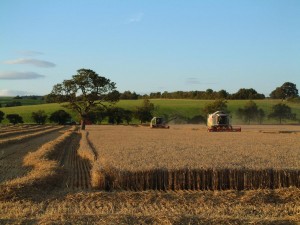 Bournemouth Natural Science Society would like to invite you to talk on ‘Increasing Crop Yield through understanding Plant Nutrition’.
Bournemouth Natural Science Society would like to invite you to talk on ‘Increasing Crop Yield through understanding Plant Nutrition’.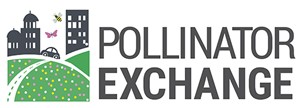
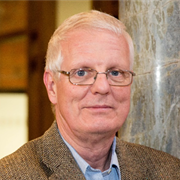 Having been at BU for three months, I thought I should introduce myself to the research community in the University and take this opportunity to tell you about some of my research interests so that anyone ploughing similar furrows can get in touch with a view to future collaboration.
Having been at BU for three months, I thought I should introduce myself to the research community in the University and take this opportunity to tell you about some of my research interests so that anyone ploughing similar furrows can get in touch with a view to future collaboration.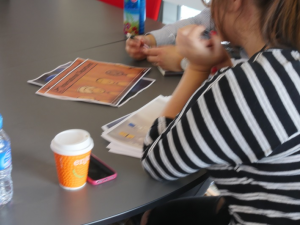 ience through a mix of multi-media methods made up of images, films and talks.
ience through a mix of multi-media methods made up of images, films and talks.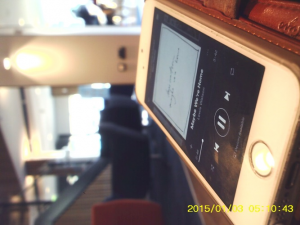 Unsurprisingly, the students identified that the images shared by the final year students appeared more positive compared with the anxieties of first year students.
Unsurprisingly, the students identified that the images shared by the final year students appeared more positive compared with the anxieties of first year students. AHRC Cross-Disciplinary Networking and Information Event (Town Meeting) on Anti-Microbial Resistance in the Indoor and Built Environment
AHRC Cross-Disciplinary Networking and Information Event (Town Meeting) on Anti-Microbial Resistance in the Indoor and Built Environment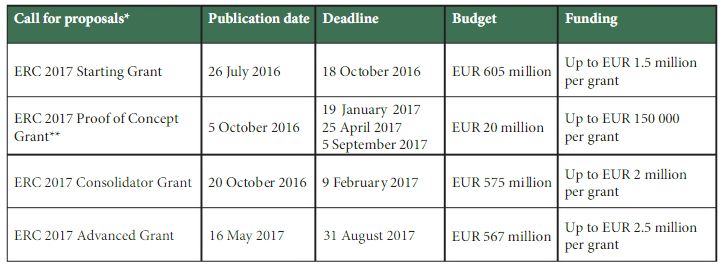
 Every BU academic has a
Every BU academic has a 


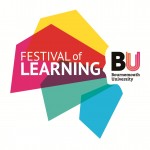 If you are still searching for some inspiration for
If you are still searching for some inspiration for 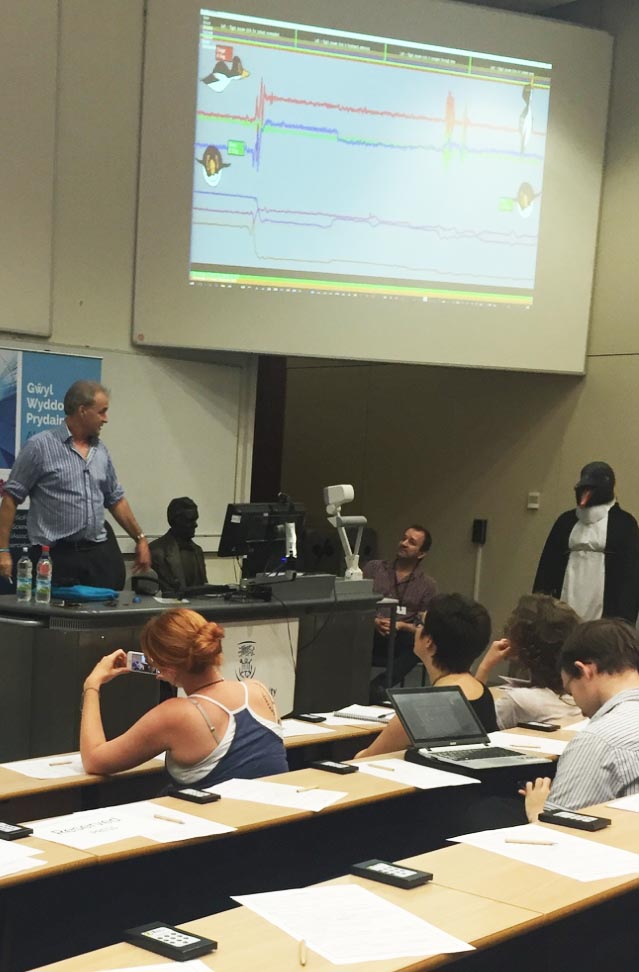
 The Department for International Development (DfID) has published a
The Department for International Development (DfID) has published a  The
The 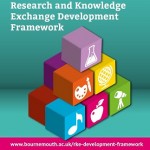 For those of you who haven’t yet heard about the Research and Knowledge Exchange (
For those of you who haven’t yet heard about the Research and Knowledge Exchange (










 BU paper among top 20 most cited papers
BU paper among top 20 most cited papers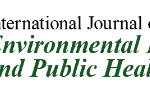 Nepal migrant workers returning from India
Nepal migrant workers returning from India New BU midwifery publication
New BU midwifery publication MSCA Postdoctoral Fellowships 2025 Call
MSCA Postdoctoral Fellowships 2025 Call ERC Advanced Grant 2025 Webinar
ERC Advanced Grant 2025 Webinar Horizon Europe Work Programme 2025 Published
Horizon Europe Work Programme 2025 Published Horizon Europe 2025 Work Programme pre-Published
Horizon Europe 2025 Work Programme pre-Published Update on UKRO services
Update on UKRO services European research project exploring use of ‘virtual twins’ to better manage metabolic associated fatty liver disease
European research project exploring use of ‘virtual twins’ to better manage metabolic associated fatty liver disease